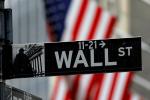
- All Instrument Types
- Indices
- Equities
- ETFs
- Funds
- Commodities
- Currencies
- Crypto
- Bonds
- Certificates
Please try another search

Is A ‘V’ Recovery Still Possible For The U.S. Economy?

The deep recession triggered by the coronavirus is the worst downturn since the Great Depression, but the hope is that the rebound will be equally swift and strong–a ‘V’ recovery. Unfortunately, the outlook for this best-case scenario is precarious.
Some Federal Reserve officials are managing expectations down, advising that the path of the rebound may be slow and uneven. “I don’t expect a sharp V-shaped recovery, I expect something more like negative quarters of growth throughout 2020, and then a gradual return to positive growth in 2021,” says Federal Reserve Bank of San Francisco President Mary Daly.
Federal Reserve Bank of St. Louis President James Bullard, by contrast, is a bit more of an optimist. “There is no reason it can’t come back in a ‘V’ shape,” Bullard says. “I know it’s become popular to say that is not going to happen. I think it can happen.”
Supporting Bullard’s optimism is the central bank’s commitment to effectively do whatever’s necessary to keep the economy from imploding by providing extraordinary monetary backing. Fiscal stimulus rolled out by the federal government will help too.
There’s also a view that because the broad shutdown of economic activity was self-imposed to fight the spread of the coronavirus, turning the economy on again at some point is also possible and that decision will unleash growth on a dramatic scale in short order. Perhaps, but much depends on how long the shutdown lasts, how much damage it unleashes and how consumers react to the new world order.
“I think a ‘V’ is possible,” former Federal Reserve Chair Janet Yellen said earlier this week, “but I am worried that the outcome will be worse, and it really depends to my mind on just how much damage is done during the time the economy is shut down in the way it is now.”
Gus Faucher, chief economist at PNC Financial, worries that “the longer this lasts, the greater structural damage it will do to the economy and the weaker the recovery will be.” The main risk is in the small-business sector. “They have the fewest resources to fall back on. Many of them are already operating at the margin. They’re the most vulnerable.”
Boris Schlossberg, managing director of BK Asset Management, thinks the critical question boils down to: When will aggregate demand for the economy bounce back to levels in the pre-virus period? “That is a much more difficult dilemma to assess given the massive damage done to consumer balance sheets.”
A key variable for the economic outlook is the decision on when to reopen the economy. But this is a grey area since it’s improbable that there will be a single day for the country overall when an “all-clear” signal is issued. A more likely scenario is that different parts of the country reopen at different times, slowly and cautiously.
At some point social distancing rules will be loosened, but the big unknown is how consumers respond to government decrees that it’s “safe” to return to work, shop at the mall and eat out at restaurants. Unfortunately, there’s a high degree of uncertainty on this front. No one’s really sure how comfortable the public will be in returning to the usual routine.
In any case, Main Street will dictate the path ahead. As economist Tim Duy reminds, “Ultimately, we the public will decide when the economy reopens, not the government.”
Meanwhile, the facts linked to the virus will guide policy choices in the weeks ahead. Dr. Anthony Fauci, director of the National Institute of Allergy and Infectious Diseases and a member of the White House Coronavirus Task Force notes that the ability to test for coronavirus is critical for deciding on the timing of relaxing social restrictions. “The success or failure of that rolling re-entry program as I call it would be the capability of being able to test, identify, isolate, get someone who is infected out of circulation — and do a degree of contact tracing,” he says. Fauci adds that “the absolute thing that you would need is to be able to respond and contain whatever rebound you get so that you don’t wind up in a situation where you have another escalation.”
Perhaps the biggest risk is that parts of the country reopen too soon and coronavirus infections and deaths re-accelerate, which leads to a new round of shutting down the economy.
“This is such a moving target that I think the biggest mistake we can make is rush to a decision,” says billionaire entrepreneur Mark Cuban.
Further complicating the outlook is the growing political pressure from some corners to reopen quickly. To counter that risk some states are developing their own timeline for deciding what’s prudent based on the facts rather than political calculations. New York Governor Andrew Cuomo, for example, has hired the consultancy McKinsey & Co. to advise on a plan for reopening.
The only sure thing is that the economic pain will be deep and broad for the near term. If you’re an optimist, you might argue that this month will mark the worst of it. But the uncertainty of what comes next will continue to weigh on expectations for some time.
“Even if spending starts to bottom in April, we see little chance of a meaningful pickup in activity in the immediate future,” advise J.P. Morgan economists in a recent research note. “We don’t think that the bottom of the current downturn will occur until May at the earliest.”
Related Articles

US Treasury bond yields have been moving higher for the past 4 years.Furthermore, the rally marks the largest 200-week rally in 10-year yield history. Wow! So today, we ask,...

The US economy appears on track to post softer growth in the first-quarter GDP report scheduled for release on Thursday (Apr. 25), based on the median for a set of nowcasts...

Dollar loses ground against risk-linked currenciesBut yen continues to slide to new 34-year lowStocks rebound, gold falls on easing geopolitical concernsKey US data could further...
Are you sure you want to block %USER_NAME%?
By doing so, you and %USER_NAME% will not be able to see any of each other's Investing.com's posts.
%USER_NAME% was successfully added to your Block List
Since you’ve just unblocked this person, you must wait 48 hours before renewing the block.
I feel that this comment is:
Thank You!
Your report has been sent to our moderators for review





Add a Comment
We encourage you to use comments to engage with other users, share your perspective and ask questions of authors and each other. However, in order to maintain the high level of discourse we’ve all come to value and expect, please keep the following criteria in mind:
Enrich the conversation, don’t trash it.
Stay focused and on track. Only post material that’s relevant to the topic being discussed.
Be respectful. Even negative opinions can be framed positively and diplomatically. Avoid profanity, slander or personal attacks directed at an author or another user. Racism, sexism and other forms of discrimination will not be tolerated.
Perpetrators of spam or abuse will be deleted from the site and prohibited from future registration at Investing.com’s discretion.